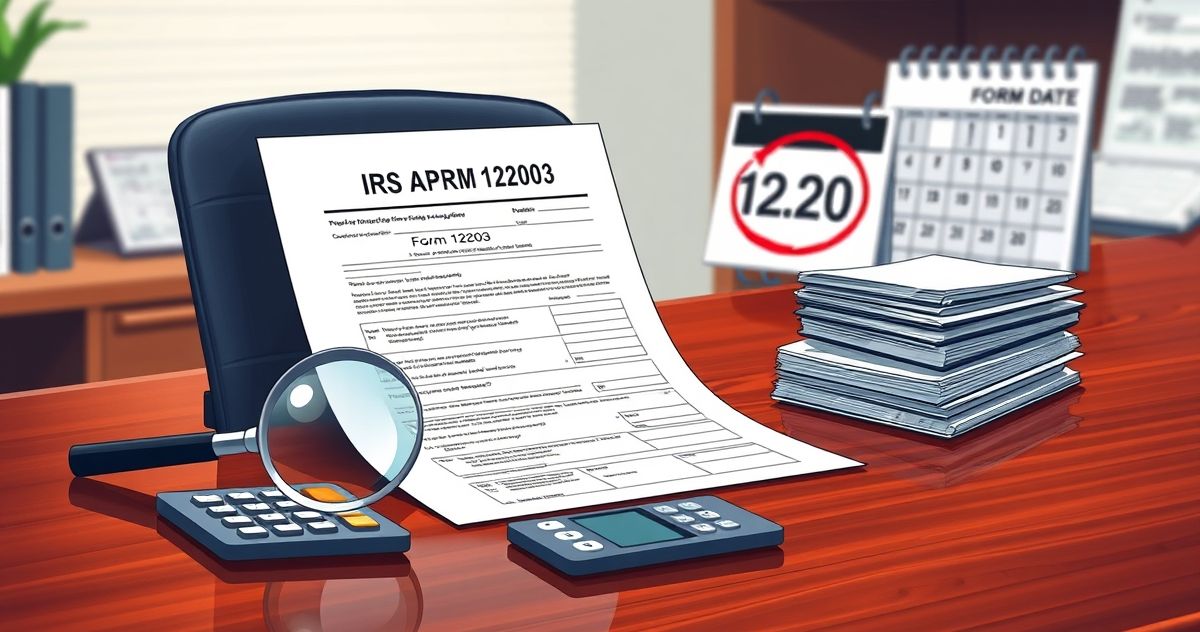Understanding the IRS Appeal Form
The IRS Appeal Form, formally known as Form 12203, Request for Appeals Review, is a critical tool for taxpayers who need to challenge a decision made by the Internal Revenue Service (IRS). This form plays a pivotal role when taxpayers believe the IRS has incorrectly assessed their tax returns, imposed penalties unfairly, or made other determinations they contest.
Primary Purpose of the IRS Appeal Form
The main purpose of the IRS Appeal Form is to provide taxpayers with a formal, structured means to present their case for why a particular IRS decision should be reconsidered. It offers an opportunity to settle disputes without having to resort to tax court, which can be a lengthy and costly process. The Appeals Office functions independently from IRS enforcement offices, providing an unbiased review of the contested decision.
Key Features of the IRS Appeal Process
Independence: The Appeals Office operates independently from the IRS exam or tax collection departments. This ensures that taxpayers receive a fair review.
Informality: The appeals process is intended to be less formal than court proceedings, focusing on dialogue and resolution.
Negotiation: Taxpayers have the opportunity to negotiate and present their perspective, which might involve producing additional documentation to support their case.
Accessible to Taxpayers: The process is designed to be accessible to all taxpayers, allowing them to challenge decisions even without hiring legal or tax professionals.
Filing and Compliance Requirements
To initiate an appeal, taxpayers must correctly complete and submit the appropriate IRS Appeal Form, generally Form 12203 or, in certain cases, Form 12153 for Collection Due Process hearings. It is essential to adhere strictly to deadlines stated in the IRS notice to avoid losing the right to appeal. Typically, taxpayers have 30 days from the date of the IRS notice to submit their appeal.
Taxpayers should understand all instructions on the form, provide clear reasons for their appeal, and include any supporting documentation that strengthens their position. This documentation could include financial records, tax returns, or statements that counter the IRS’s claims.
Penalties or Consequences for Non-Compliance
If a taxpayer fails to comprehensively follow the appeal process, adverse effects may include:
- Loss of Appeal Rights: Missing deadlines or providing insufficient documentation can lead to a loss of the right to appeal.
- Increased Financial Liability: If the appeal is not filed, or if it is unsuccessful, the taxpayer may be liable for additional taxes, interest, and penalties as determined by the original IRS decision.
- Enforcement Actions: Following a failed or unfiled appeal, the IRS may pursue collections actions such as levies, liens, or wage garnishments.
Importance in Tax Resolution and Compliance
The significance of the IRS Appeal Form extends beyond merely contesting taxes. It provides a critical avenue for taxpayers seeking tax resolution and compliance:
Rectifying Errors:
Taxpayers have the platform to rectify errors in their tax assessments or IRS decisions, potentially reducing their tax liability.
Maintaining Compliance:
Engaging with the IRS through the appeal channel demonstrates a commitment to maintaining compliance and resolving disputes amicably and legally.
Exercising Taxpayer Rights:
A well-structured appeal emphasizes taxpayer rights, enabling individuals to assert their case peacefully without the complexity of legal proceedings.
Financial Impact:
Effective use of the appeals process can significantly impact a taxpayer’s financial standing, potentially mitigating penalties, interest charges, or incorrect tax assessments.
Conclusion
The IRS Appeal Form is indispensable for safeguarding one’s financial interests against potential errors in IRS decisions. By understanding and effectively utilizing the appeals process, taxpayers can ensure fair treatment and uphold their rights. In-depth comprehension of the appeal form, coupled with timely and accurate submission, empowers taxpayers to challenge decisions confidently and constructively. Navigating the appeals process proficiently is a key element of maintaining financial well-being and compliance within the U.S. tax system.
In summary, the IRS Appeal Form is not just a paperwork exercise; it is a vital aspect of taxpayer advocacy and fiscal responsibility. Proper use of this resource can lead to favorable outcomes, preserving both financial integrity and peace of mind for taxpayers.

